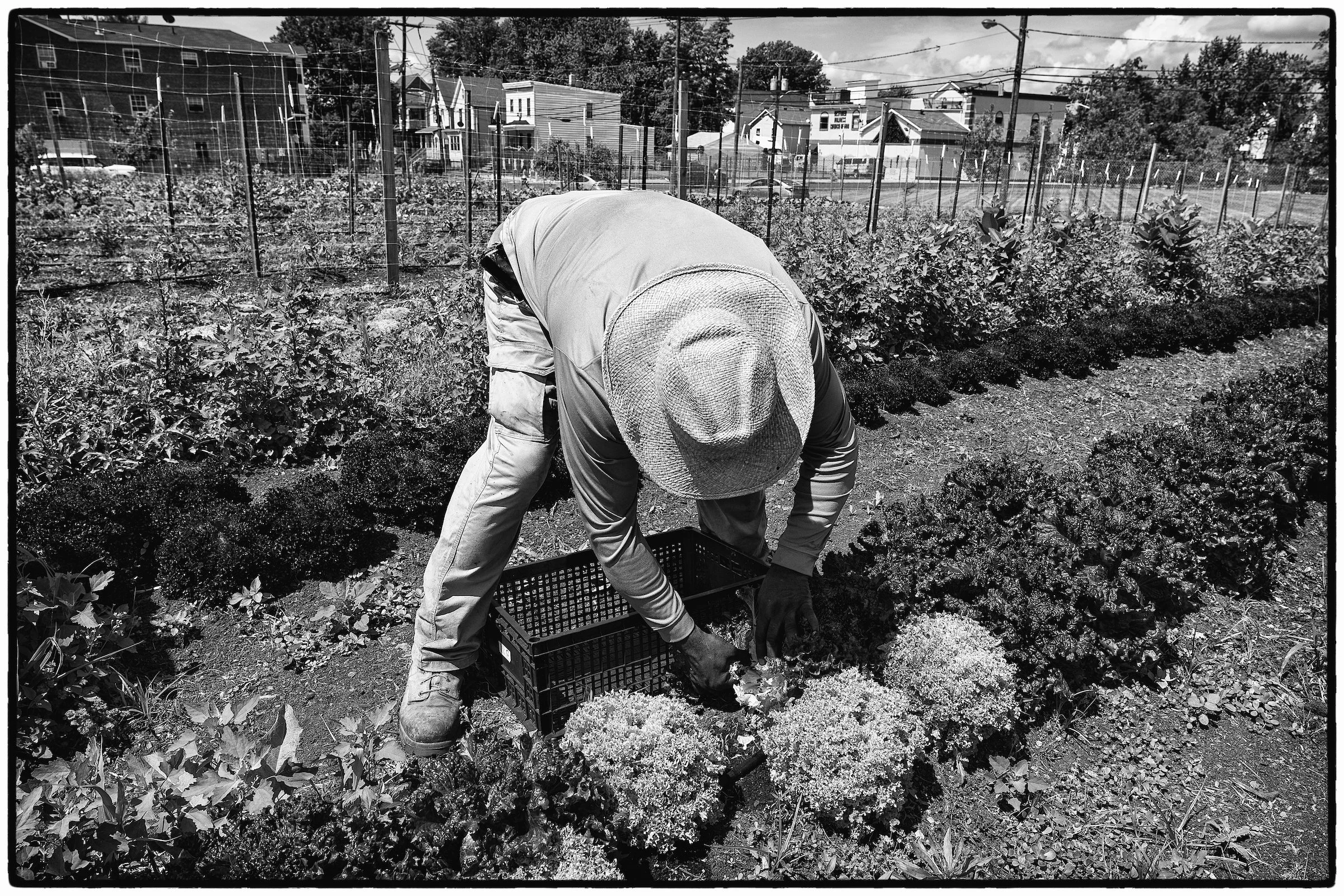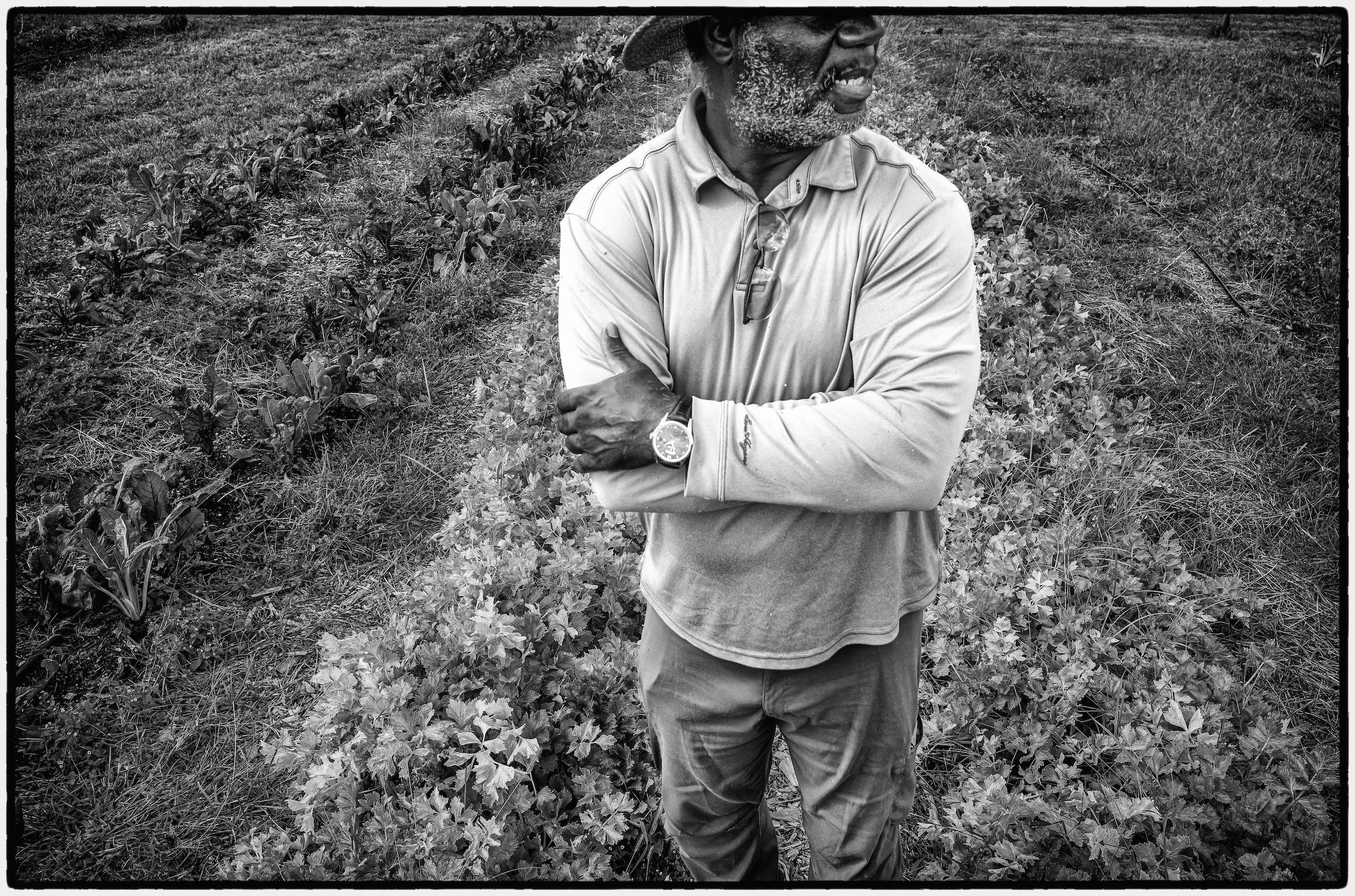Photo Essay| Mark the Farmer
Mark Kearney stands next to a birdhouse squash he is growing at Hawthorne Avenue Farm on Monday, Sept. 26, 2022. Kearney stewards for the Greater Newark Conservatory in Newark’s South Ward. The farm also boasts a community garden. (Brian Branch-Price/TheFotodesk)
NEWARK, NJ—On a recent Tuesday afternoon, Mark Kearney pulls weeds to make room for the eggplant, peppers, tomatoes, beans, squash and melons that will grow on the three-acre urban oasis he manages.
Kearney, who was formerly incarcerated, says he feels alchemy working the land on the Newark-based Hawthorne Avenue Farm.
"It changed my life,” he said. “Totally gave me a new start and a new outlook on life. I knew I had an opportunity to change and to help change other people's lives. Once you touch that ground and become one with the soil, you see what plants can do – to feed you..."
A history of discrimination against Black farmers is documented in a 1997 report, “Civil Rights at the United States Department of Agriculture,” which detailed the agency’s racist practices that led to a sharp decrease in the numbers of Black farmers and acres of land owned by Black Americans.
According to the latest research, Black farmers who operate farms now make up less than 2% of the sector, down from 14% 100 years ago.
Kearny is part of a growing resurgence of Black Americans who are reclaiming their connection to the land their ancestors farmed when they were enslaved. The land they were promised - that elusive 40 acres and a mule.
Public Square guest photographer Brian Branch-Price documented Kearney at Hawthorne Avenue Farm in a photo essay.
Kearney tends to the greens on Hawthorne Avenue Farm on July 20, 2020. (Brian Branch-Price/TheFotodesk)
Kearney stands mid-field on the Hawthorne Avenue three-acre organic farm on Monday, Sept. 26, 2022. (Brian Branch-Price/TheFotodesk)
Kearney inspects seedlings on Hawthorne Avenue Farm on July 20, 2020. (Brian Branch-Price/TheFotodesk)
Kearney extracts weeds from the soil at the Hawthorne Avenue Farm on July 20, 2020. (Brian Branch-Price/TheFotodesk)
Kearney surveys the land on the Hawthorne Avenue Farm on August 8, 2020. (Brian Branch-Price/TheFotodesk)






